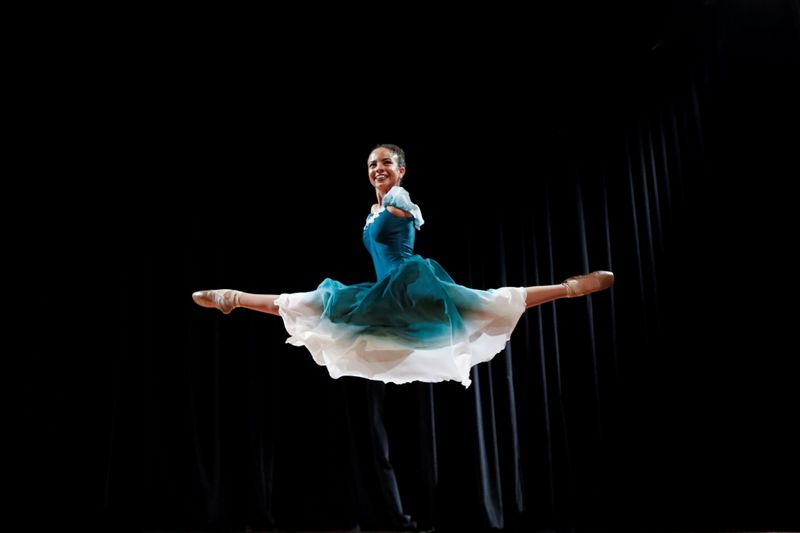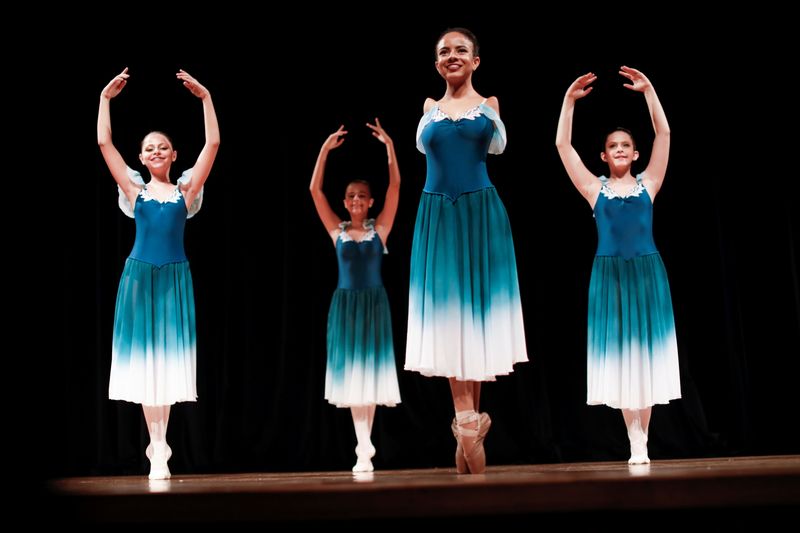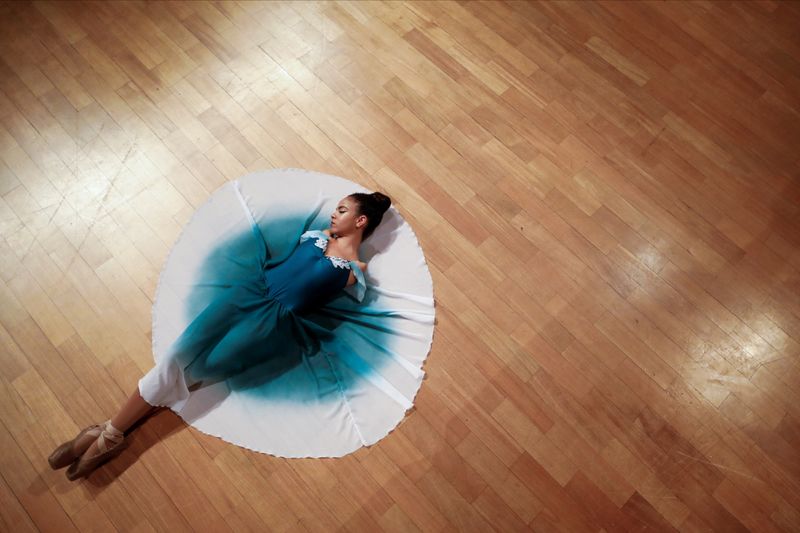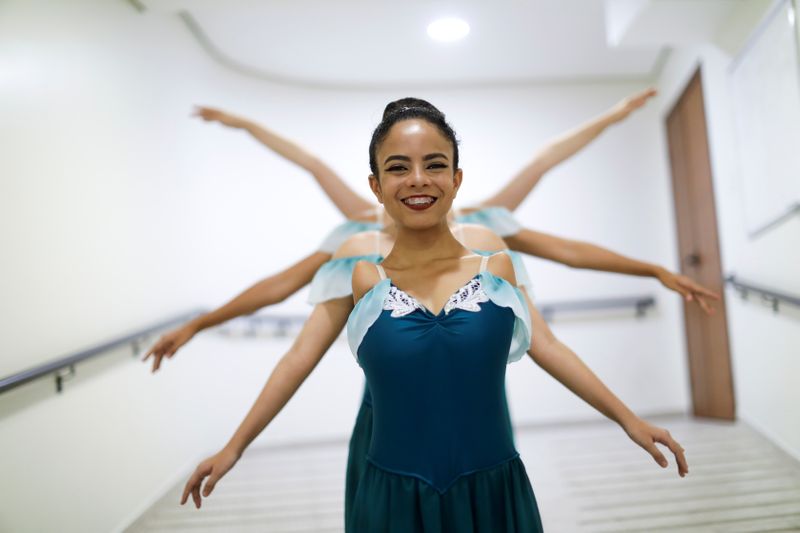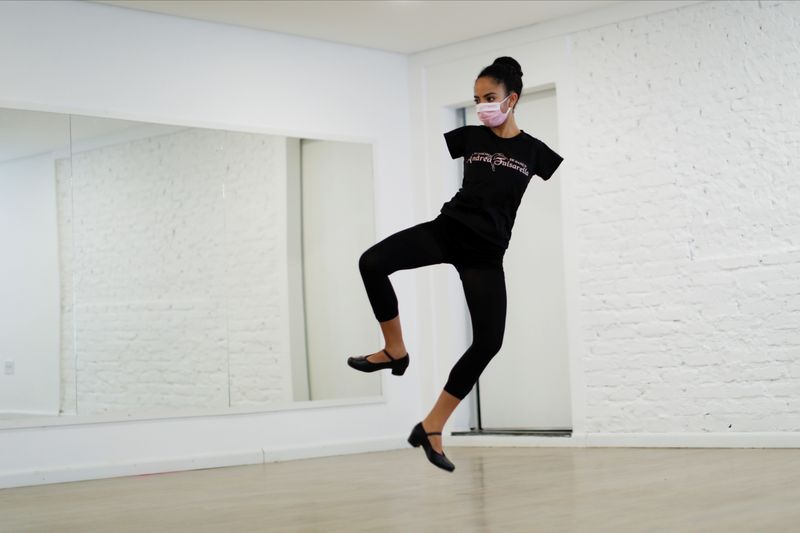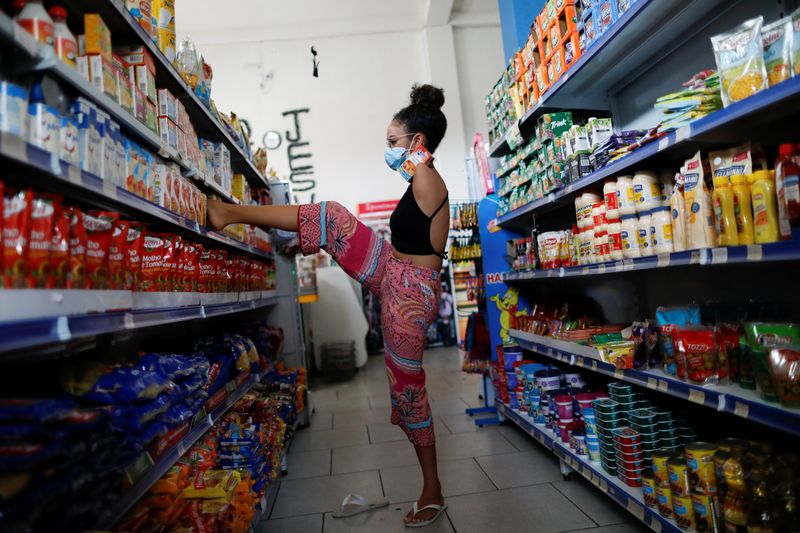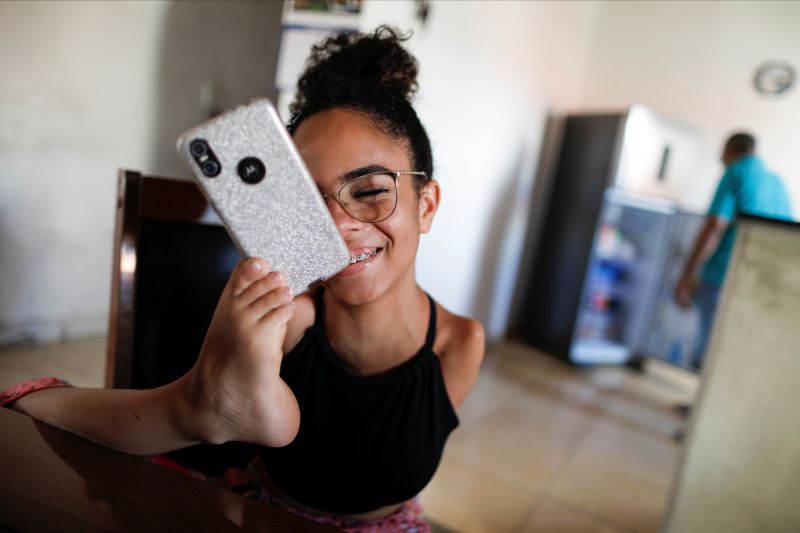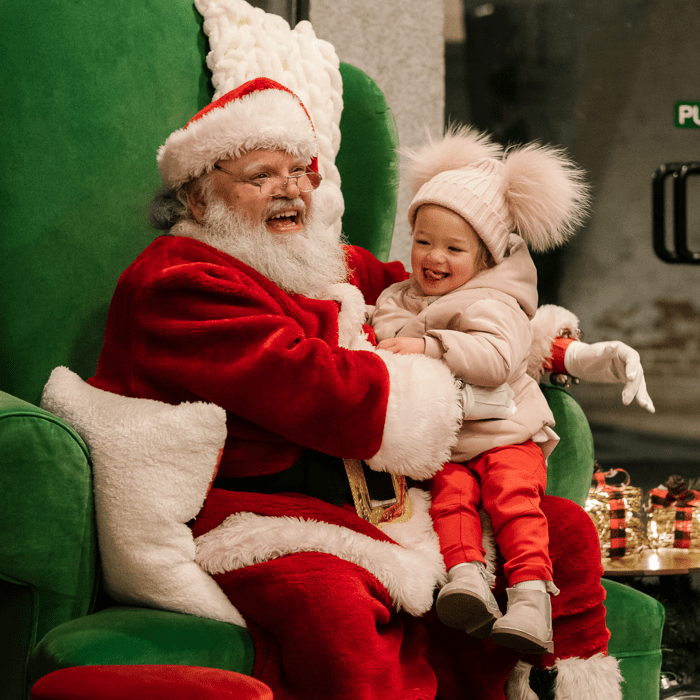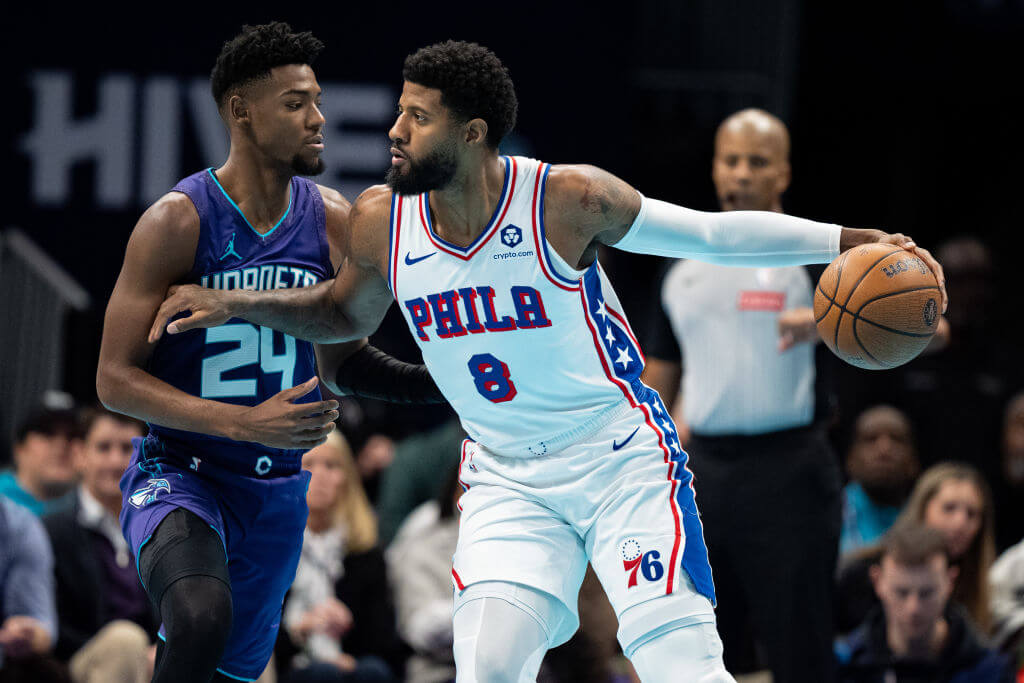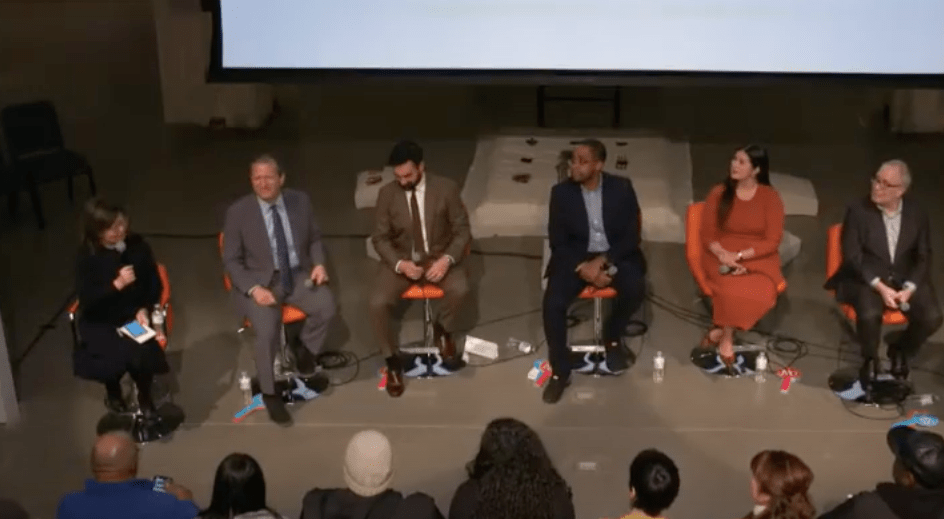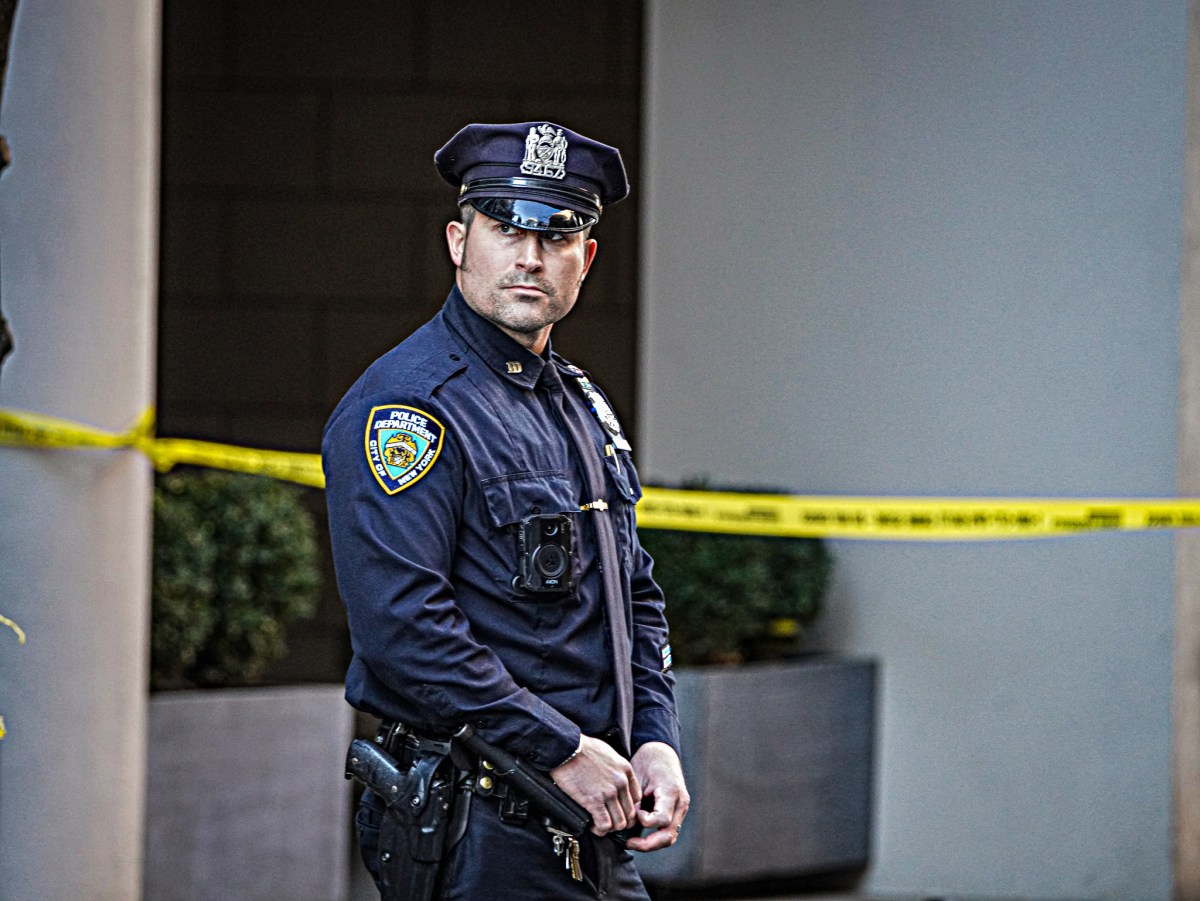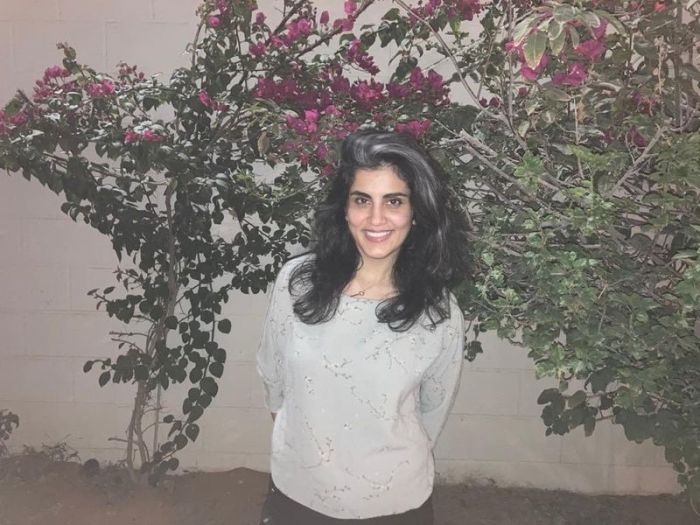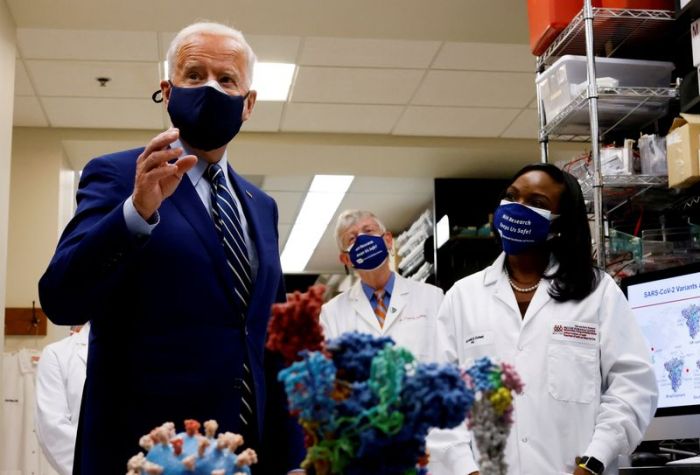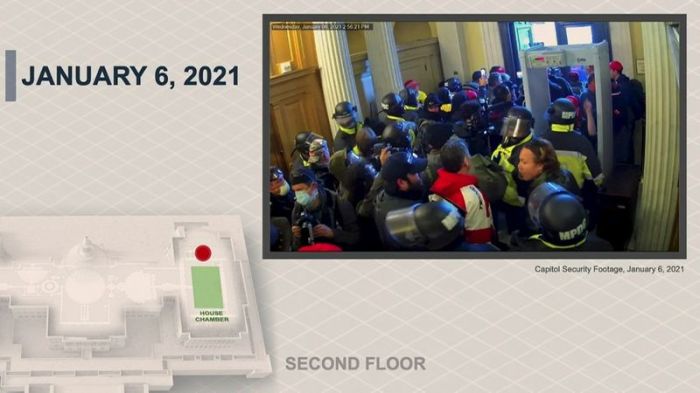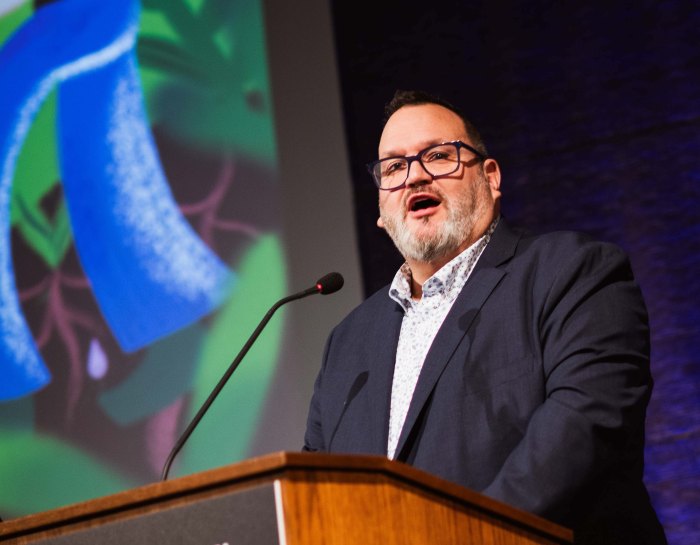SANTA RITA DO SAPUCAI, Brazil (Reuters) – When Vitória Bueno’s mother first dropped her off at ballet class, she worried about her five-year-old fitting in.
Born without arms, Bueno’s dream of being a dancer seemed painfully unrealistic – especially in a small town in rural Brazil, where her disability made her a social curiosity.
“People would line up outside the house to see her,” said her mother Wanda, 39, still hurt as she recalled the insensitivity. “They would lift up her sleeves to look.”
But Bueno, now 16, focused on her assemblés, pirouettes and other technical challenges.
She took up jazz and tap as well.
Now a regular at the ballet academy in her hometown in the state of Minas Gerais, Bueno’s talent has made her a social media star and an inspiration to many.
“For me, arms, they’re just a detail,” Bueno said at the theater where she performs. “I follow with my eyes, as if they were there.”
Watching her glide across the wooden stage, synchronized with her colleagues in a dazzle of green and white, it is easy to forget she dances without arms.
“I don’t feel like I need them at all,” she added.
She started ballet on the advice of her physiotherapist, who noticed the young Bueno would arrive dancing.
More than just realizing a dream, the strength and flexibility gained through dance have proven crucial to Bueno, who does everything from brushing her teeth to picking items off the supermarket shelf with her feet.
“There are things she can do with her feet that I can’t do with my hands,” said her stepfather, Jose Carlos Perreira.
With over 150,000 Instagram followers (@vihb_bailarina), Bueno is glad to be a role model for others too.
“We are more than our disabilities, so we have to chase our dreams,” she said, flashing a broad smile.
(Reporting by Leonardo Benassatto; Writing by Stephen Eisenhammer; Editing by Richard Chang)

